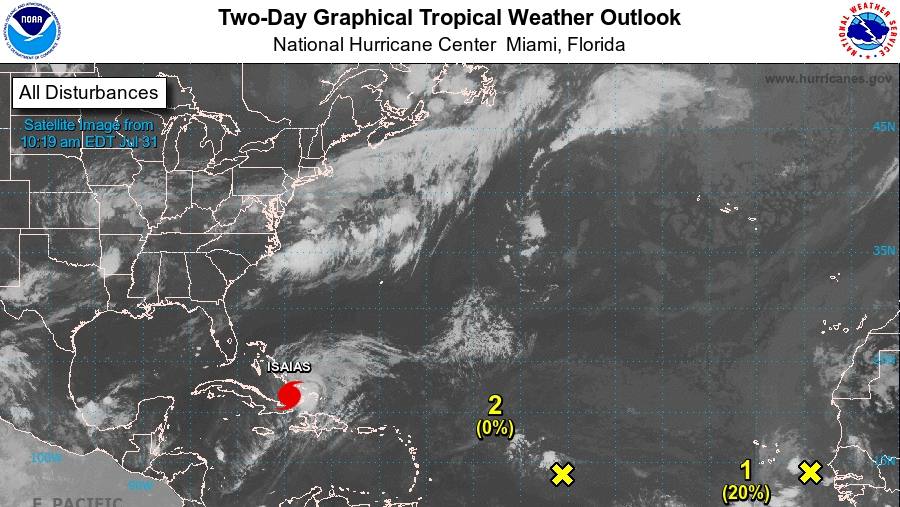-
Health & Wellness
Safety measures before a hurricane: Hurricane Isaias heads towards Florida

Hurricane Isaias is gaining strength near the Bahamas and is predicted to move towards Florida’s eastern coast late Saturday, Aug. 1. A state of emergency has been issued for the eastern part of the state to allow residents and visitors time to prepare.
While most people tend to focus their preparations on having an adequate supply of food, water and batteries, it's also important to plan for health and wellness, especially in light of the ongoing COVID-19 pandemic.
Dr. Michael Boniface, a Mayo Clinic emergency medicine physician, says addressing health and safety concerns before a storm will help keep you and your family safe during and after severe weather.
"Taking time to review your personal health needs and add items to your supply kit before a storm is extremely valuable," says Dr. Boniface.
Watch: Dr. Boniface discusses safety during the storm.
Journalists: Broadcast-quality sound bites with Dr. Boniface are in the downloads at the end of this post. Please "Courtesy: Mayo Clinic News Network."
First-aid kit and medication
At a minimum, Dr. Boniface recommends arranging a first-aid kit with items such as bandages, gauze, antibiotic ointment, handkerchiefs, and over-the-counter pain relievers and allergy medicine.
He also recommends checking your medications and having at least three to 10 days' worth of medications on hand. With the COVID-19 pandemic making some prescriptions difficult to obtain, check with your pharmacy or health care provider for alternatives in advance.
"Make plans also to keep medications safe, especially if they require refrigeration. Make sure you have proper storage and enough ice in case of power loss. It is also important to find out how the long medication can last at room temperature," says Dr. Boniface.
"Additionally, make sure you have extra batteries or a backup power supply for any medical equipment, such as insulin pumps, sleep apnea machines or oxygen tanks."
Lastly, keep a list of health providers, phone numbers and medications in your emergency kit, as well as any important papers, such as medical records, health care directives and living wills.
Emergencies
Many hospitals have reported a decrease in patients coming to the emergency department because of fears surrounding COVID-19. While it is important to follow local, state and federal directives regarding evacuations and safety, Dr. Boniface says health issues, such as chest pain, shortness of breath, abdominal pain or passing out, are medical emergencies and warrant a call to 911.
“We don’t want people to ignore symptoms that could be life threatening, whether related to COVID-19 or another issue,” he says.
Learn more
Additional hurricane preparation lists and other tips are available online:
- Centers for Disease Control and Prevention
- Federal Emergency Management Association
- Department of Homeland Security
In addition, Mayo Clinic has more information on hurricane health and safety preparedness and storm cleanup tips:
- "3-day plan to eat from a can"
- "Safety tips during a storm"
- "Mayo Clinic Minute: Stay safe after storm cleanup"
- "Mayo Clinic Minute: Staying hydrated during hurricane recovery"
Editor's Note: Mayo Clinic is closely monitoring Hurricane Isaias. There are no changes to the Jacksonville, Florida, clinic operations or schedules at this time. Please check the patient hurricane hotline (904-953-7100) for additional updates.
Related Articles







